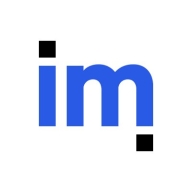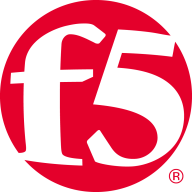


Imperva Application Security Platform and NGINX App Protect are competing products in the web application protection category. Based on user feedback, NGINX seems to have the upper hand due to its superior features, which are viewed as worth its higher cost.
Features: Imperva includes features like comprehensive DDoS protection, robust analytics, and ease of use. On the other hand, NGINX App Protect offers flexible integration capabilities, strong traffic management, and adaptive protection mechanisms ideal for development environments.
Room for Improvement: Imperva could improve policy management and caching flexibility, while NGINX users indicated the need for an enhanced user interface, better technical documentation, and improved integration capabilities.
Ease of Deployment and Customer Service: Imperva provides versatile deployments across various cloud environments, whereas NGINX is mainly used on-premises. Imperva customer service is typically rated high with swift support, whereas NGINX users report slower response times, especially related to cloud deployments.
Pricing and ROI: Imperva offers competitive pricing with extensive service coverage and significant ROI in mitigating frequent attacks. NGINX's pricing, although higher, aligns with its feature-rich offerings, providing valuable cost-benefit for larger deployments.
My experience with the pricing or licensing of Cloudflare Web Application Firewall is that many features can be accessed for free, so the pricing is definitely reasonable.
They know how much money they are losing while the system is down, so by increasing the possibility of not having a down website or web application, return on investment can be calculated easily.
I would rate the technical support with Cloudflare as excellent every time I've had to contact them.
The technical support of Cloudflare Web Application Firewall rates between five and seven at maximum.
I would rate the technical support of Imperva DDoS as ten.
They were quick and efficient when we had issues.
I would rate the customer support a 9 on a scale of 1 to 10.
The scalability of Cloudflare Web Application Firewall rates between 8 to 9, as it depends upon the use cases and what exactly the client needs.
99% of customers are using the cloud version of Imperva DDoS protection, so they just purchase the new license and scale as needed.
The scalability of NGINX App Protect is good and open source at its best.
The stability of Cloudflare Web Application Firewall deserves a perfect 10 out of 10.
The stability of Imperva DDoS is very good, as it seems they have a lot of servers around the world.
It is a quality solution, and I would rate its stability as eight out of ten.
Cloudflare will check the order of the message, and if you, as a customer, are not connected or have some kind of network issue, when you reconnect, you will receive the latest state and missing updates.
I think they're doing a good job with DNS and as support for any domains that I create or that my clients create, it's mandatory for me to ensure they have Cloudflare as their DNS provider.
The product can improve by having more multitenancy capability, which is currently not available.
Maybe Imperva DDoS could use endpoints to get information about the attacks before they commence from the endpoint level or establish cooperation with endpoint vendors to share this information.
There was more information from F5 regarding hardware requirements and specifications to deploy the service.
The GUI and web GUI configuration could be improved to be easier to manage and use.
I think NGINX App Protect could be improved by having it come out of the box with NGINX.
I would rate the pricing of Imperva DDoS as five, where one is very cheap and ten is very expensive.
The custom rules and the geo-redundant geographical rule feature, which allows me to implement geographical rules for customers, add significant value.
All the DNS and everything is routed through Cloudflare, so anybody coming to any of the sites has to go through Cloudflare first, making them the first wall of defense.
The best features of Cloudflare Web Application Firewall are multiple, including the WAF, rate limiter, and bot attack protection.
I have utilized Imperva's Intelligent Traffic Filtering feature. This feature helps me understand how the attack is progressing and what is happening inside the requests to our website.
The most valuable feature is the ability to operate in a DevOps environment and to be configured through API and pipeline by the developers themselves.
Detecting bots and blocking IPs have proven effective for securing applications.
It is stable, affordable, and easy to manage.
| Product | Market Share (%) |
|---|---|
| Imperva Application Security Platform | 7.8% |
| Cloudflare Web Application Firewall | 5.6% |
| NGINX App Protect | 2.1% |
| Other | 84.5% |
| Company Size | Count |
|---|---|
| Small Business | 16 |
| Midsize Enterprise | 6 |
| Large Enterprise | 6 |
| Company Size | Count |
|---|---|
| Small Business | 83 |
| Midsize Enterprise | 25 |
| Large Enterprise | 61 |
| Company Size | Count |
|---|---|
| Small Business | 9 |
| Midsize Enterprise | 5 |
| Large Enterprise | 12 |
Cloudflare Web Application Firewall's intuitive dashboard enables users to build powerful rules through easy clicks and also provides Terraform integration. Every request to the WAF is inspected against the rule engine and the threat intelligence curated from protecting over 27 Million websites. Suspicious requests can be blocked, challenged or logged as per the needs of the user while legitimate requests are routed to the destination, agnostic of whether it lives on-premise or in the cloud. Analytics and Cloudflare Logs enable visibility into actionable metrics for the user.
Imperva Application Security Platform delivers comprehensive and continuous web threat protection. Renowned for its ease of use, it shields web applications and databases from various cyber threats while integrating seamlessly with cloud and on-premises environments.
Imperva Application Security Platform protects web environments by offering advanced security measures against threats like DDoS attacks, SQL injections, and cross-site scripting. As a robust web application firewall, it provides extensive monitoring and bot management capabilities. The platform integrates content delivery networks for enhanced performance and scalability, while real-time traffic analysis ensures consistent protection. Despite its strengths, improvements can be made in policy management and customization options. Users seek better integration with third-party tools and more competitive pricing models. The inclusion of AI for enhanced analytics is also anticipated.
What are the key features of Imperva Application Security Platform?Imperva Application Security Platform is implemented in industries needing strong database and application protection. Companies use it to enforce geolocation restrictions and manage bots, benefiting sectors like finance and e-commerce where data security and threat monitoring are critical. Its ability to protect and ensure data accessibility makes it integral to business operations prioritizing cyber resilience.
NGINX App Protect application security solution combines the efficacy of advanced F5 web application firewall (WAF) technology with the agility and performance of NGINX Plus. The solution runs natively on NGINX Plus and addresses some of the most difficult challenges facing modern DevOps environments:
NGINX App Protect offers:
We monitor all Web Application Firewall (WAF) reviews to prevent fraudulent reviews and keep review quality high. We do not post reviews by company employees or direct competitors. We validate each review for authenticity via cross-reference with LinkedIn, and personal follow-up with the reviewer when necessary.